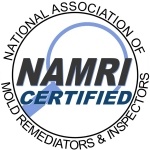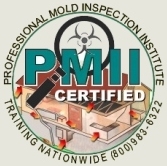Mold And Real Estate Transactions
Learn how to avoid mold damage related issues that can potentially result in real estate lawsuits.

Homes that are infected with mold contamination face
special challenges in today's housing market. In such cases,
mold remediation can make the difference between a quick
sale and a frustrating wait for a buyer. At GTA Mold
Removal, we understand both the unique dynamics and the
demanding time limitations of real estate transactions and
have developed services specifically geared to meet those
needs. We work closely with real estate agents, brokers,
sellers, and home inspectors. We approach every home knowing
that people will live there and raise their families. We
recognize that each home represents the most important
personal and financial investment most families will make.
We seek to aid home sellers in preparing their homes for a
quick sale. The mere thought of mold contamination is enough
to send any seller into a state of despair and frustration.
But there is little reason to be concerned if you have
properly maintained your home and if you have taken prudent
measures to repair and document past moisture and
mold-related problems. Still, mold contamination can be
nerve wrecking on both sides of the closing table.
Tips For Sellers & Property Managers
GTA Mold Removal recommends the following for avoiding mold damage related issues that can potentially result in real estate lawsuits:
Mold Inspection Prior to Listing. Make sure you
have the results of a mold inspection performed by a
licensed and certified inspector in hand prior to listing.
Your proactive stance will be viewed as a good-faith gesture
by potential buyers. Mold inspections for real estate
transactions are much more invasive than the typical mold
investigation. Mold inspection protocols that can be
performed with minimal or no damage to existing
infrastructure include visual assessment of all accessible
areas, photographic documentation, infrared thermal imaging, fiber
optic examinations, moisture assessments, air sampling, and
review of disclosure statements, maintenance records, and
prior abatement or inspection protocols. The cost of
performing a mold inspection will depend on the expertise
involved and the type of work performed, but depending on
the location, you can expect to pay between $500 and $1,500
for a mold inspection by a qualified expert.
Disclosure. Disclose in writing any present or
previous building water or mold problems when selling real
estate. Explain clearly what actions were taken to correct
such problems in disclosure documentation and attach it to
the real estate sales contract where the buyer can
acknowledge receipt of the disclosure. Failure to disclose is perhaps the most common
problem that sellers encounter. Whether intentional or not,
failure to disclose will cause some major headaches in the
future. Maintain a comprehensive list of all repairs, minor or
major and pay particular attention to issue involving water
damage - even seemingly small problems. If areas such as wall
cavities need to be inspected, prepare to do so long before you
list the property. If you are in doubt whether
you should disclose small concerns, don't hesitate; go ahead
and disclose. Disclose everything and don't conceal anything.
Make All Necessary Repairs. Before you list the property, be
sure to take prudent steps to repair all damage related to water
intrusion and mold contamination. Avoid camouflage tactics
intended to hide mold problems from potential buyers such as
painting over mold growth, concealing mold behind stored
items, furniture, furnishings or decorations. It might also
include masking the odour of mold with air fresheners and
deodorizers. If you suspect
a mold problem, hire a professional to investigate. If a major
mold problem is discovered, be sure that professional becomes
involved at an early stage. You don't want to run the risk of
cross contaminating other areas of your home. Remember, a modest
expense now can save thousands on the sale of your home or in
litigation costs in the future.
Document. One of the advantages of paying the added expense of a
professional mold investigation and abatement is that you now
have sound documentation for future disclosure. You can
demonstrate with confidence that you have taken the steps
necessary to identify and repair all known concerns. But be sure
your consultant and abatement contractor provide a detailed
account of all work performed as well as all important dates.
Educate and Cooperate. After hearing the countless nightmares of mold
infested home purchases, buyers are becoming much more
knowledgeable on mold contamination and the risks it poses to
their new home. As a seller you too should become aware of your
rights and liabilities. At the same time, respect the buyer's
concern without giving into their every whim. If there is a
justifiable reason to suspect microbial contamination, work with
the sellers to resolve this issue. But don't go overboard with
onsite investigations and air sampling. There are
right ways to investigate and their are wrong ways to
investigate. Consult with experts to determine your option.
Meanwhile, maintain a positive and constructive dialogue between
yourself and the prospective buyers - or the respective real
estate agents.
Air Sampling? Please note, air sampling is riddled with potential
problems and the interpretations of such tests should never be
left to the novice. False positive and false negative results
are common, so think twice before risking such a major purchase
on these results. There are ways to design informative
assessments using air sampling, yet a complete study with high
confidence levels will be expensive (well over $1,000).
Be Willing to Assume Partial Costs. If a legitimate unabated
concern exist, either agree to repair the problem before the
sell or be willing to assume partial cost for future repairs.
But be sure to agree to limits - signing a blank check is an
invitation to financial disaster, especially in litigation
matters involving personal injury. The same holds true for areas
that you know have been repaired but clearance testing
demonstrates residual levels of contamination. Was the
contamination removed or wasn't it? Well, it may be impossible
to tell with 100% certainty, so if a chance exists, agree to a
fair amount for future testing and repairs should the problem
resurface. Clearly, you will want an attorney to review all
agreements prior to signing on the dotted line.
In The Sales Contract. Advise the home buyers to
consider hiring an independent mold inspector or an
independent home inspector with mold expertise. Include in
the sales contract a statement affirming the buyer's
unrestricted opportunity to inspect and test the property
thoroughly before closing and that the property is being
sold "as is" with no implied or express warranties as to the
physical, mold or environmental condition of the property.
Also include a clause that releases the seller, lender and
real estate agent from all mold liability to the buyer. This
release of liability should be contingent on the accuracy
and completeness of the details provided in the seller's
written mold disclosure and on the buyer's unrestricted
opportunity to do mold testing prior to closing.
Please Note: The information contained on this page
is strictly opinion and should not be construed as legal
advice. Always consult with a licensed real estate lawyer
when completing a real estate transaction.







